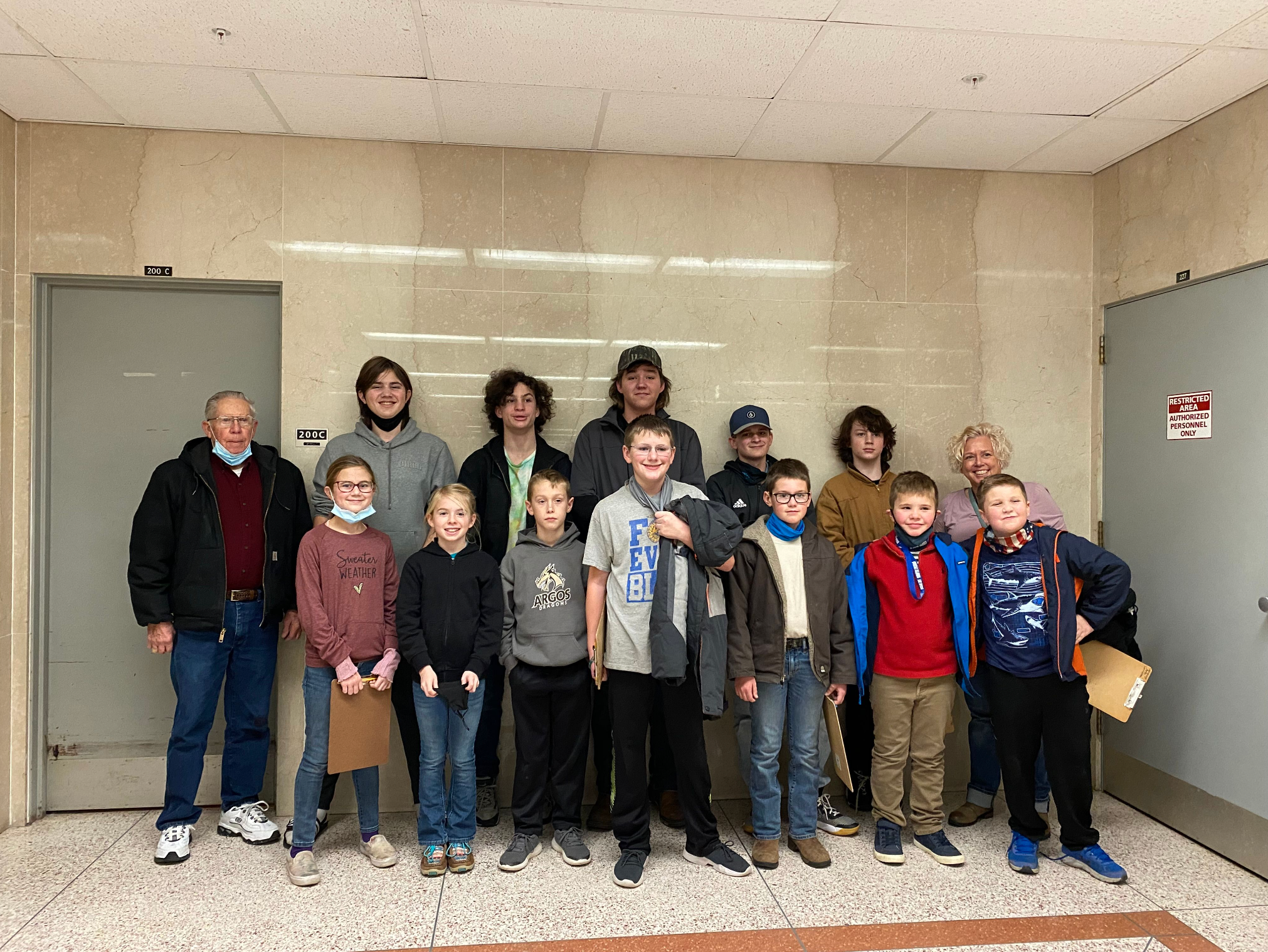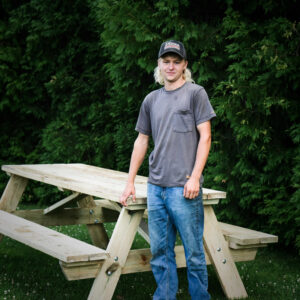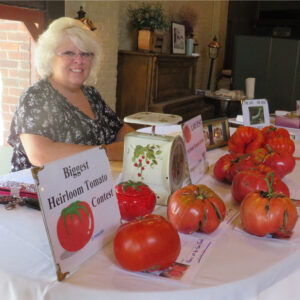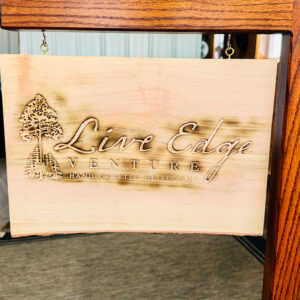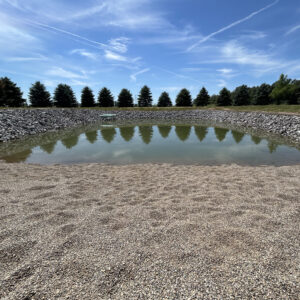Local Forestry Club Members Put Their Knowledge to the Test
Writer / Lois Tomaszewski
Photography Provided
People who work with youth want to make sure that everyone finds a place where they can succeed. This is evident in the decades-long success of an Argos-based forestry club.
The group is associated with the county 4-H system. The school system provides meeting space, bus transportation and other needs for the club. Students have to join 4-H individually. It is open to any student who wants to take part in either of the two age-based divisions, including students who are home schooled. Students in the program compete against other teams in the state and even on the national level.
The club is moderated by Gene Cooper, a former high school science teacher, and Jennifer Stults, a middle school science teacher. Cooper is stepping down after more than 60 years at the helm, with several competitions reaching the highest levels. He took his first team to state in 1960.
“Once I started teaching, I started this activity,” Cooper says. “There were students who were left out and they couldn’t do what they could do, which was to work at something, go and earn a prize.”
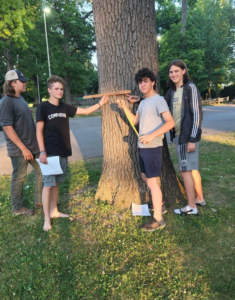 The prize was reaching state and national competitions by demonstrating their knowledge of forestry. Students begin preparing for the competition in the fall. The area contest is held in October or November, the state contest is held in December, and the nationals, for teams that qualify at state, are held in the summer. The junior division is for students in third through eighth grade, and the senior division is for high school students.
The prize was reaching state and national competitions by demonstrating their knowledge of forestry. Students begin preparing for the competition in the fall. The area contest is held in October or November, the state contest is held in December, and the nationals, for teams that qualify at state, are held in the summer. The junior division is for students in third through eighth grade, and the senior division is for high school students.
At the state contest, members of the junior division have a daunting task. They are required to identify 55 varieties of trees native to Indiana, name the seeds for 25 trees, identify 12 samples of wood, name 25 insects or identify the damage caused by specific insects, and name 15 tree diseases by looking at a sample of each disease. These requirements increase for the older age group, Cooper says.
The competition is coordinated by the Indiana Department of Natural Resources Division of Forestry, and the FFA.
While the competition is an opportunity for the students to achieve accolades, understanding forestry and learning about trees is its own reward, Cooper says.
“If they develop a love and understanding about trees, and federal and state parks, that really is enough,” he says.
Learning about trees requires students to study and research to prepare for questions, but at the national level there are other skills required to achieve the top spot. The Argos-based group has done so before. The national competition requires competitors to identify trees from all over the United States such as the balsam fir, lodgepole pine, Sitka spruce and cabbage palm. There are more insects to identify and more diseases to diagnose.
Students are also required to demonstrate their understanding of how to measure a tree, and determine the board feet of lumber that could be obtained if that tree was harvested. Other tests involve using a compass and pacing, reading topographical maps, and participating in team competitions in a quiz-bowl format.
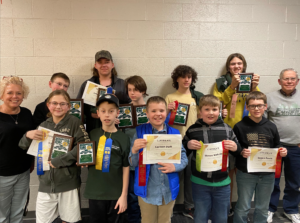 While Cooper’s visits to the national competition have been numerous, Stults is attending this year’s competition for the first time. She has been part of the club mentorship for three years, but the nationals were canceled in 2020 and held virtually in 2021 due to COVID-19. She and the team members are looking forward to the trip to Jackson’s Mill in Weston, West Virginia.
While Cooper’s visits to the national competition have been numerous, Stults is attending this year’s competition for the first time. She has been part of the club mentorship for three years, but the nationals were canceled in 2020 and held virtually in 2021 due to COVID-19. She and the team members are looking forward to the trip to Jackson’s Mill in Weston, West Virginia.
“This is a positive thing for the kids,” Stults says. “The other students at school recognize that these students are in the forestry club. It’s nice to see other kids respond to the teams’ success.”
While the focus on forestry and a successful season is an accomplishment, Cooper and Stults also see students achieving other successes and enhancing their lifelong learning. They learn the importance of preparation, working together as a team and supporting each other. Study skills such as memorization techniques also impact future endeavors.
“It gives students a boost of confidence that they don’t always get in class,” Stults says.


